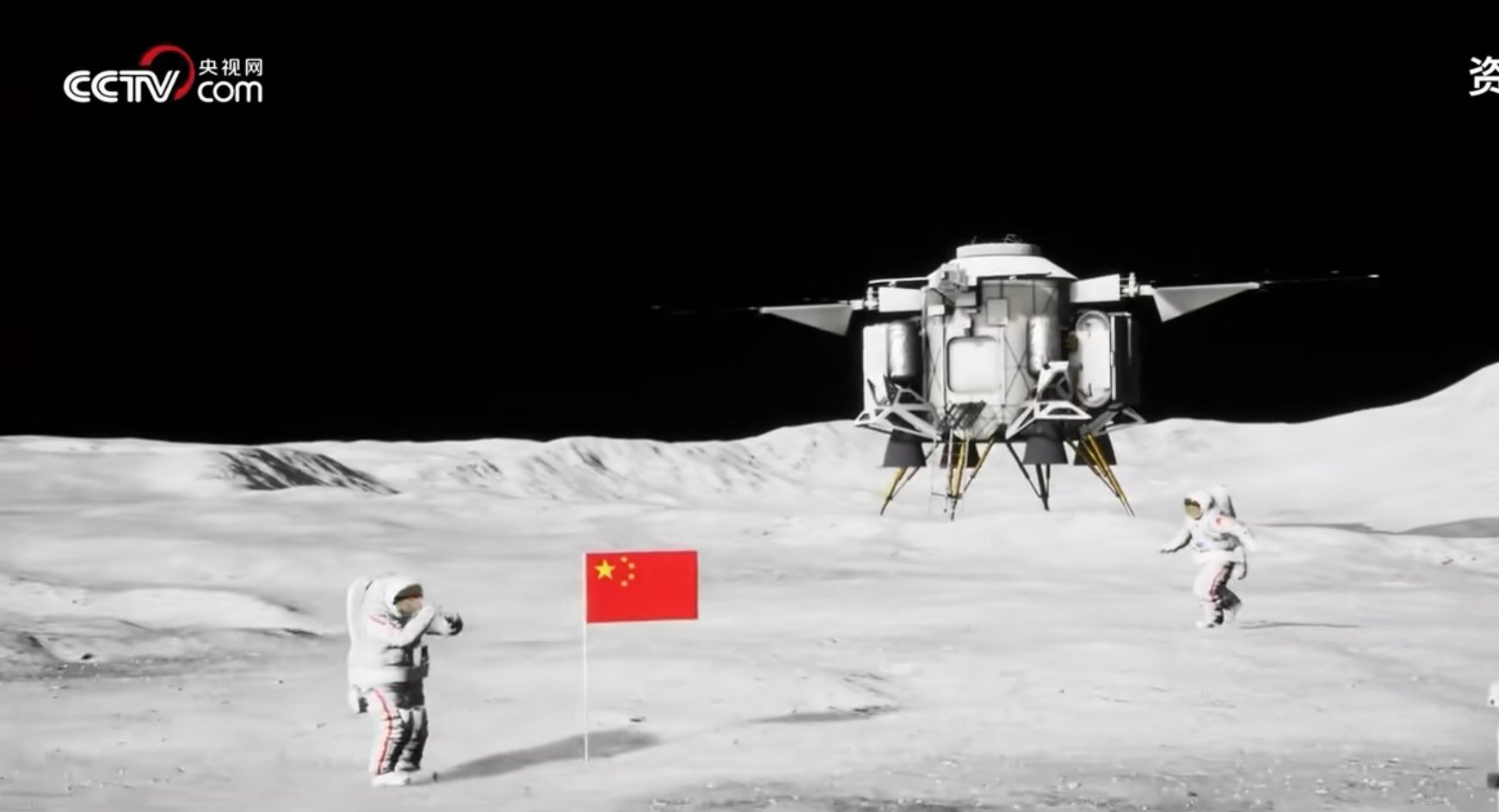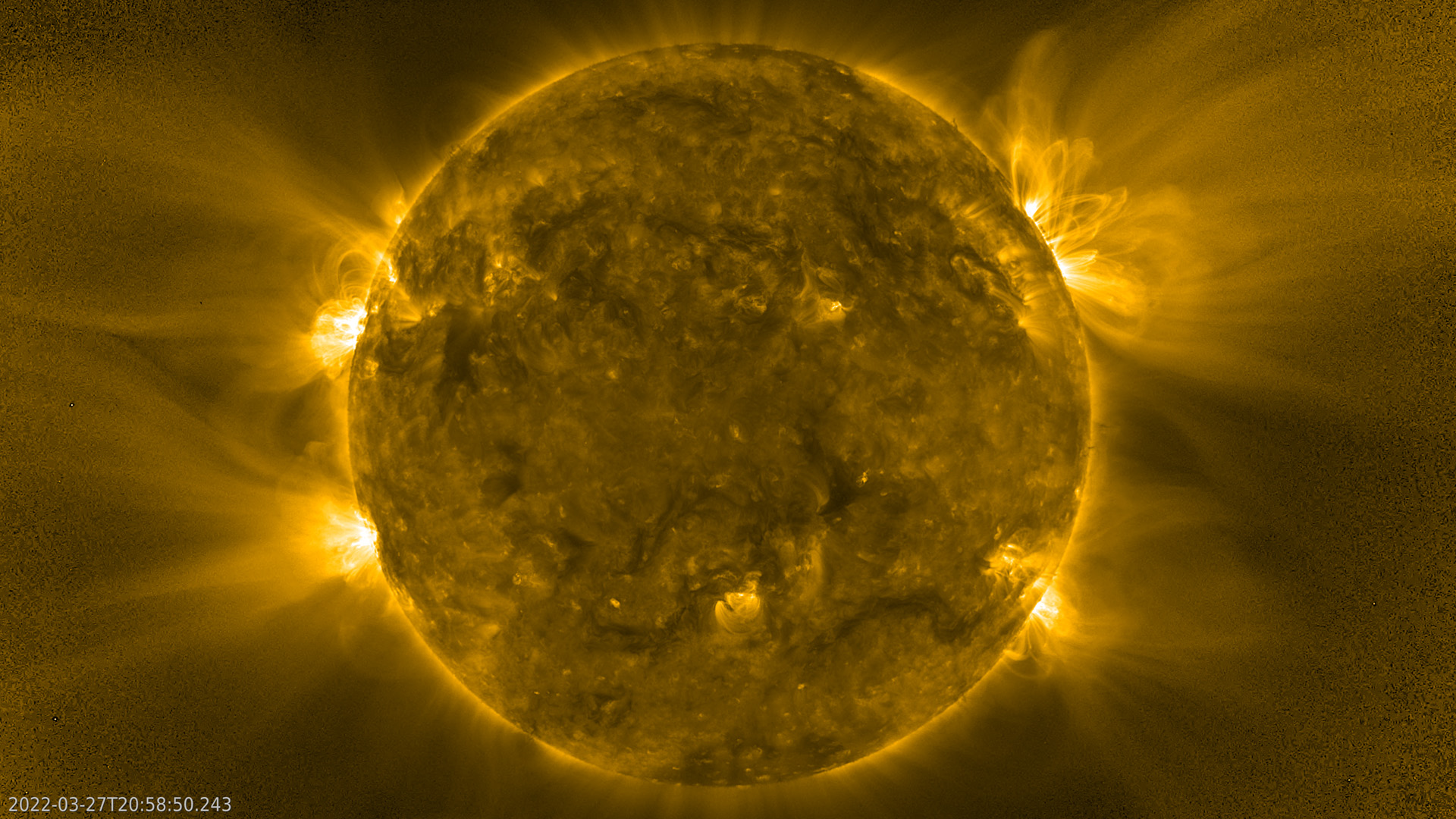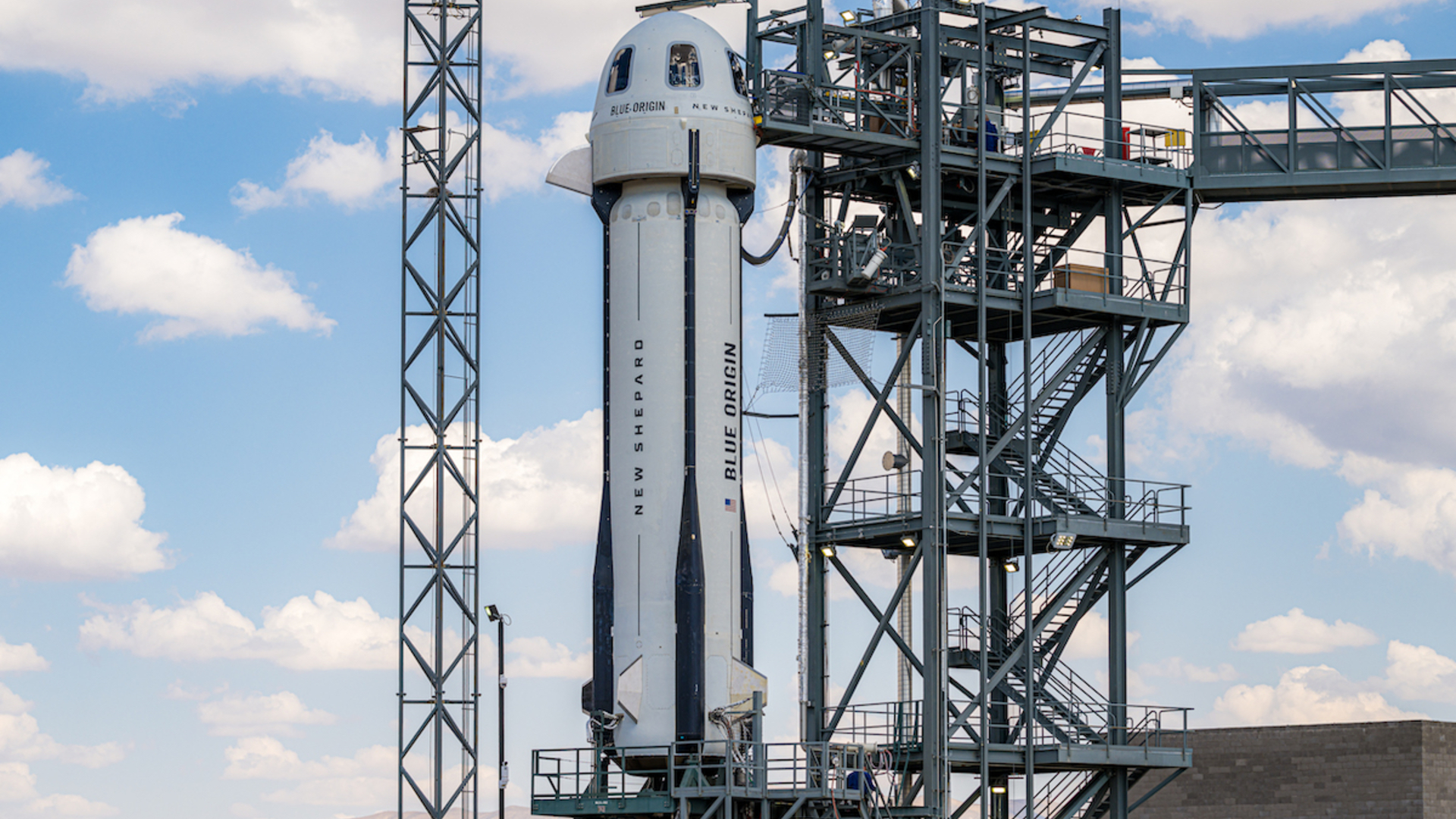'We're in a space race.' NASA chief says US 'better watch out' for China's moon goals
NASA administrator Bill Nelson believes China could attempt to stake a claim over portions of the moon.

NASA Administrator Bill Nelson claims that the U.S. is in a space race with China which could see Beijing attempt to make territorial claims to parts of the moon.
Both China and the United States have lofty goals for lunar exploration and colonization. Both the U.S. and China have major lunar ambitions, with NASA working on its Artemis program to return astronauts to the moon, while China aims to send its own crews to the moon before the end of the decade and build a lunar base in the 2030s. Both powers are considering landing in some of the same areas near the lunar south pole.
"It is a fact: we're in a space race," the NASA administrator told Politico in an interview published Jan. 1. "And it is true that we better watch out that they don't get to a place on the moon under the guise of scientific research. And it is not beyond the realm of possibility that they say, 'Keep out, we're here, this is our territory.'"
Relations between the U.S. and China are complex and have become increasingly strained in recent years. The mistrust between the two powers is also visible in affairs relating to outer space.
Still, there is no legal basis for claiming territory in space. China, like the U.S. and 132 other countries, is a signatory to the 1967 Outer Space Treaty, which states that "Outer space, including the moon and other celestial bodies, is not subject to national appropriation by claim of sovereignty, by means of use or occupation, or by any other means."
Nelson, however, points to Chinese behavior and territorial claims in the South China Sea as a possible indicator of future claims being made on the moon.
Get the Space.com Newsletter
Breaking space news, the latest updates on rocket launches, skywatching events and more!
Chinese space industry figures have moved to refute Nelson's latest claims. "We carry out spaceflight to develop high technology and improve economic growth and people's living standards," Yang Yuguang, a senior space industry observer in Beijing and vice-chair of the International Astronautical Federation's space transportation committee, told state media outlet China Daily. "We don't take part in a space race with any other countries because competition in this regard is meaningless," Yang added.

Nelson appeared to suggest that cooperation with China could be possible during the International Astronautical Congress in Paris in September, despite existing congressional barriers to NASA engaging with Chinese entities. The former Florida senator and astronaut stated however that China would need to be more open and transparent regarding its plans for space.
The chairperson of China's main space contractor, the China Aerospace Science and Technology Corporation (CASC), which makes the country's Long March rockets, space station modules and other spacecraft, recently listed a number of concerns created by the U.S. position on China.
Wu Yansheng stated that CASC faces challenges to its plans due to conditions created by the U.S. such as "restarting great power competition," being kept out of the International Space Station program and Chinese aerospace firms such as CASC being added to U.S. export blacklists.
Wu also claimed that the U.S. is seeking to seize strategic space resources including specific orbits, locations and radio frequencies, SpaceNews reported last month. China has also earlier voiced concerns over SpaceX's Starlink megaconstellation of communications satellites.
Follow us on Twitter @Spacedotcom or on Facebook.
Join our Space Forums to keep talking space on the latest missions, night sky and more! And if you have a news tip, correction or comment, let us know at: community@space.com.

Andrew is a freelance space journalist with a focus on reporting on China's rapidly growing space sector. He began writing for Space.com in 2019 and writes for SpaceNews, IEEE Spectrum, National Geographic, Sky & Telescope, New Scientist and others. Andrew first caught the space bug when, as a youngster, he saw Voyager images of other worlds in our solar system for the first time. Away from space, Andrew enjoys trail running in the forests of Finland. You can follow him on Twitter @AJ_FI.
-
Unclear Engineer China is a dictatorship that is spending large sums of money to become "dominant" in space, whatever that means. There is already competition for orbits, frequencies, etc. in Earth orbit. It would not surprise me if China and the U.S. have plans to land in the same places on the moon and use the same resources.Reply
That could work out like Antarctica, where there is space to set up multiple facilities and no shortage of the things that Antarctica has.
But the Moon could be a different situation, if there is only sufficient water for a small colony.
However, I am not seeing how China could claim parts of the Moon, given that they are signatories to a treaty that says no nation should do that. And, how would the enforce such a claim. War on the Moon would precipitate war on Earth's surface.
So, at worst, we will probably get in each other's way if we don't have joint programs.
And joint programs look even less likely now that we have the current experience with Russia and the IST codependence. Do we really want to be commited to a colony program that depends on China when they decide to invade Taiwan? -
Classical Motion In response to #2.Reply
Apparently not when it comes to gene splicing. America put restrictions and bans on much of this research. But American tech went right to China and other countries, where it is not banned and their military funds and supports it. These are huge amounts of money and patents. Probably copied and printed in China. ha ha.
And with all other research it seems to be a 24 hr. turn around. Information is a true commodity now, and all seem to buy and sell it. Look how information has change this society in just a short time. And it's not true information. Information does not have to be true. To be valuable. Information only needs to be agreeable to be valuable. This is what what information has become. Agreeable.
Dis-agreeable information is now called mis-information.









